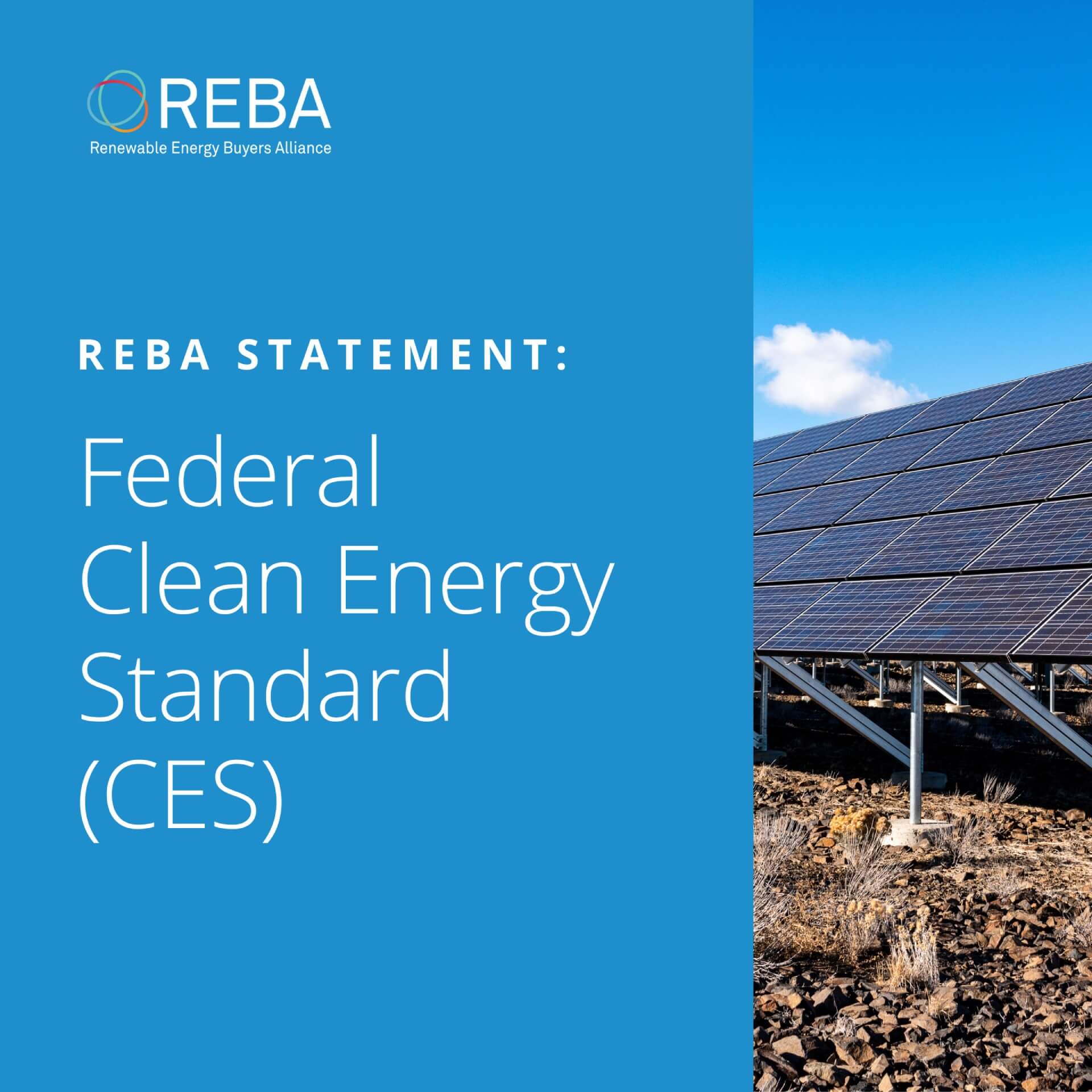Statement from CEBA CEO Miranda Ballentine

American businesses recognize that climate change is an existential threat to the planet, people, and our future. Clean energy is, and will remain, one of the critical solutions to addressing the climate crisis. With rapidly accelerating climate impacts, time is of the essence to move the country’s power sector on a path of decarbonization.
The Clean Energy Buyers Association (CEBA) supports policies that will decarbonize the power system for all customers reliably, equitably, and cost-effectively. CEBA’s membership, which is comprised of more than 250 members, representing $6 trillion in US revenues and 13 million employees, is a community of energy customers who are actively accelerating the zero-carbon energy future.
CEBA supports a well-designed, customer-centric CES that decarbonizes the grid for all, empowers customers to lead the clean energy transition and leverages markets for clean energy. The large customer community wants to contribute to clean energy deployment and doing so means that a CES, or suite of complementary approaches, should:
- Provide clear, competitive procurement mechanisms to drive down customer costs
- Promote a customer driven transition, including clear mechanisms to address and contain costs, while enabling customers to move faster and meet their climate and clean-energy goals
- Incentivize markets and infrastructure needed to achieve power sector decarbonization at least cost, including expansion and reform of organized wholesale electricity markets and transmission
- Unlock innovation and ensure an equitable transition to clean energy
We recognize that there are a wide range of climate and energy policies needed and various approaches and complementary policies can and should be utilized within and alongside a CES to achieve the principles above.
The implementation of a well-designed CES can help achieve a zero-carbon energy system and usher in a new era of economic growth, equity, and opportunity. Recent analysis from Resources for the Future (RFF) and the Clean Energy Buyers Institute finds that the net benefits of a federal CES are on the order of $100 billion per year in 2035 and 2050 and that an 80% CES by 2030 balances ambition, technology costs, and consumer costs1. Large energy buyers have ambitious clean energy goals of their own and look to state, regional, and federal energy policies to help provide access to accelerated, innovative, cost-effective zero-carbon energy across the U.S. Any CES proposal, or analogous suite of complementary policies, should include design elements that reduce the costs of compliance and empower customers.
Citation
1RFF and Clean Energy Buyers Institute. Comparison of Power Sector Decarbonization Pathways: Preliminary Takeaways. July 2021
